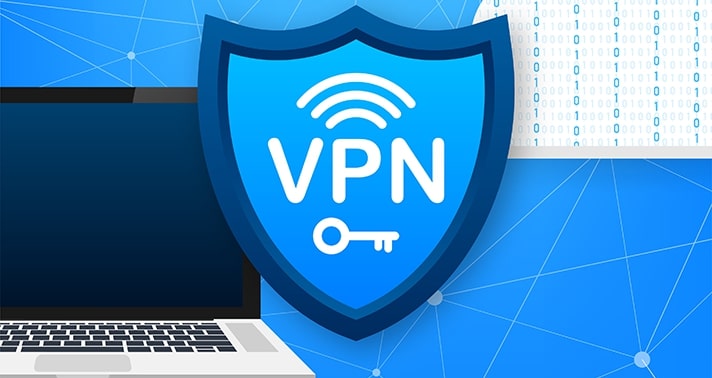Virtual Private Network

Here are the key aspects of a VPN:
-
Secure Connection: When you connect to a VPN, your internet traffic is encrypted, which means it is encoded and protected from unauthorized access. This encryption helps ensure that your data remains confidential and secure while traveling over the internet.
-
Privacy Protection: By using a VPN, you can enhance your privacy and anonymity online. Your IP address, which is used to identify your device and location, is masked or replaced with the IP address of the VPN server. This makes it more difficult for others, such as your internet service provider (ISP) or potential eavesdroppers, to track your online activities or monitor your browsing habits.
-
Access to Restricted Content: VPNs can also be used to bypass geo-restrictions and access content that may be blocked or unavailable in your region. By connecting to a VPN server located in a different country, you can appear as if you are accessing the internet from that location, granting you access to region-restricted websites, streaming services, or online platforms.
-
Public Wi-Fi Security: When using public Wi-Fi networks, such as those in cafes, airports, or hotels, your data is more vulnerable to interception by hackers or malicious actors. Using a VPN adds an extra layer of security by encrypting your data, making it safer to transmit sensitive information like passwords, financial details, or personal data.
-
Remote Access: VPNs are commonly used for secure remote access to private networks. Employees can connect to their company's internal network using a VPN, allowing them to access files, applications, or resources as if they were physically present in the office. This is especially useful for remote workers or individuals who need to access company resources while traveling.
It's important to note that while VPNs provide increased security and privacy, they are not foolproof, and their effectiveness can depend on various factors such as the VPN service provider, encryption protocols used, and the overall security of your devices and internet connection.
There are numerous VPN service providers available, both free and paid, offering different features, server locations, and levels of security. It's important to choose a reputable VPN provider that has a strong track record of protecting user privacy and security.
There are several popular VPN (Virtual Private Network) services available in the market. Here are some well-known VPN providers:
-
ExpressVPN: ExpressVPN is widely regarded as one of the best VPN services available. It offers a large network of servers in numerous countries, strong encryption, fast speeds, and user-friendly apps for various platforms.
-
NordVPN: NordVPN is another highly reputable VPN provider known for its advanced security features and vast server network. It offers strong encryption, a strict no-logs policy, specialized servers for specific purposes like streaming or torrenting, and user-friendly applications.
-
CyberGhost: CyberGhost is a user-friendly VPN service that provides a combination of security and convenience. It offers a large network of servers, strong encryption, and specialized servers for streaming and torrenting. It also has user-friendly apps with pre-configured profiles for different needs.
-
Surfshark: Surfshark is a newer VPN provider that has gained popularity for its affordable pricing and comprehensive feature set. It offers strong encryption, unlimited simultaneous connections, a no-logs policy, and specialized servers for various purposes.
-
Private Internet Access (PIA): Private Internet Access is a VPN provider known for its strong security features and commitment to user privacy. It offers strong encryption, a large server network, and advanced features like ad blocking and malware protection.
-
Hotspot Shield: Hotspot Shield is a widely used VPN service that offers both free and premium versions. It provides secure and private browsing, fast speeds, and a user-friendly interface.
It's important to consider factors such as server network, encryption strength, logging policy, speed, and user-friendliness when choosing a VPN service. Additionally, it's recommended to review and compare the features, pricing plans, and customer reviews of different VPN providers to find the one that best suits your specific needs.





